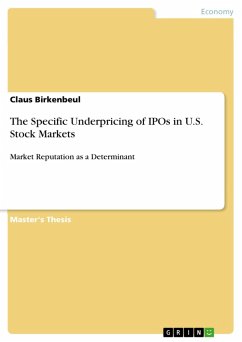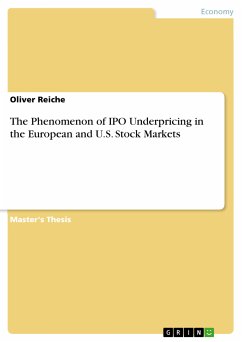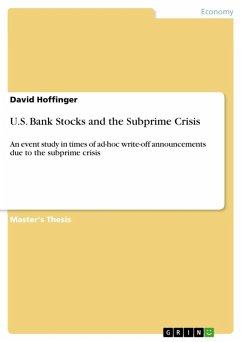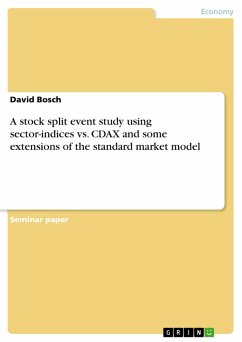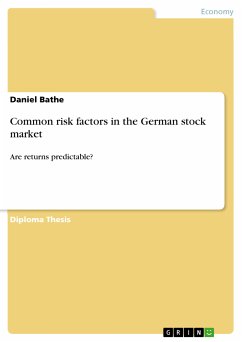Master's Thesis from the year 2010 in the subject Business economics - Banking, Stock Exchanges, Insurance, Accounting, grade: 1,3, Munich Business School University of Applied Sciences, language: English, abstract: The economical development is improving and world trade volumes are expected to recover. The recorvery process is developing constantly but slowly: Share prices have rebounded within 2009, worldwide trade volumes have recovered slightly and are expected to catch up with values from the end of 2008 during the next year (cf. OECD 2009). The world is recovering from one of the most severe economic downturns since The Great Depression. Comparing GDP volumes from the previous period at the same time, OECD countries lost up to 2%. As a logical consequence the U.S. IPO market has been affected by the economic meltdown as well. "IPO activity tends to cluster in certain time periods, thus it appears in waves, so-called hot IPO markets" (Hamer 2007, 9). From 2007 to 2008 th e number of IPOs decreased. The U.S. market broke down by more than 85% in one year. In 2007 there were 160 IPOs whereas in 2008 21 securities went public fort the first time (cf. Ritter 2010, 2). After the slowest year for IPOs since the 1970s, the market began to show signs of life again in 2009. The number of offerings increased by 21% although the offering value decreased by almost 15% (cf. PWC 2010). [...]
Dieser Download kann aus rechtlichen Gründen nur mit Rechnungsadresse in A, B, BG, CY, CZ, D, DK, EW, E, FIN, F, GR, HR, H, IRL, I, LT, L, LR, M, NL, PL, P, R, S, SLO, SK ausgeliefert werden.

